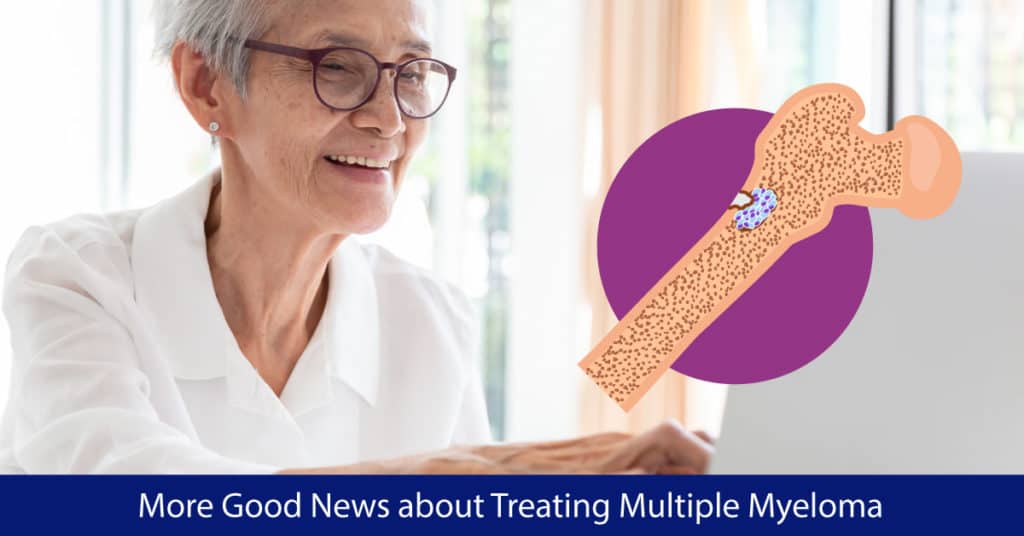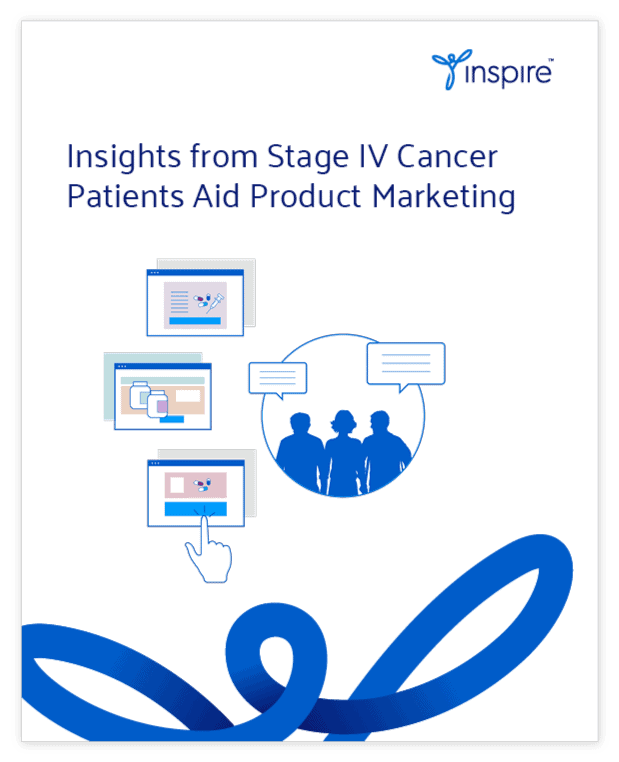More Good News about Treating Multiple Myeloma

By Kathleen Hoffman, PhD, MSPH
This spring, the FDA approved a drug called idecabtagene vicleucel (‘ide-cel’), a form of CAR-T cell therapy available to treat some forms of recurrent multiple myeloma (MM). Ide-cel is used to modify a patient’s own T-cells to attack the B-cell maturation antigen (BCMA) present in myeloma.1
Multiple myeloma is a rare chronic cancer of the blood plasma that accounted for only 1.8% (32,000) of all new cancer cases in the United States in 2020, with approximately 12,410 deaths expected in 2021.1,2,3 To give an idea of the chronic nature of MM, patients qualify for ide-cel only if the cancer recurs after treatment with a minimum of four different cancer medications, and those four have to include an immunomodulatory agent, a proteasome inhibitor, and an anti-CD38 monoclonal antibody.4
However, “…a lot is happening in myeloma that is really improving patient care,” says Patrick A. Hagen MD, MPH, assistant professor of Hematology and Bone Marrow Transplantation at Loyola University. In fact, “…a myriad of new drugs [have] been approved or are in the process of being approved in the relapse setting” for MM, Hagen says. For example, the FDA approved two other New Drug Indications for treating relapsed or refractory MM this spring, isatuximab-irfc and melflufen.
Both isatuximab-irfc and melflufen are used in combination with two other drugs as a protocol for induction of remission.2,5,6
[With my MM relapse], …I started on infusions of [drug trio] for the next four months. I am still on this regimen and my numbers are coming down. I met with the Stem Cell Transplant Dr. at MD Anderson and I am slated to get a transplant in [date].
The standard induction therapy is almost always a 3-drug combination, with one of the drugs being a steroid, says Dr. Hagen. The choice of other drugs depends on several factors, including the potential toxicities and comorbidities for the individual patient. One Inspire member described their treatment in a post:
I had two cycles of [3-drug combination] which was poorly tolerated. I was then moved on to [different drug trio] for 5 cycles and in [date] I had a SCT [stem cell transplant]. Today marks 180 days post [stem cell] transplant and current I am in the consolidation phase. This is expected to last for two cycles and then (fingers crossed) we move to maintenance.
New treatments are becoming increasingly targeted, with developing classes of drugs including antibody-drug conjugates, nuclear export inhibitors, multi- and bi-specific engagers, and now CAR-T cell therapy. There are currently 314 clinical trials for MM treatments in the recruiting phase on clinicaltrials.gov. “We would highly encourage every patient to participate in clinical trials,” says Dr. Hagen. “This is your best chance at an improved outcome and it is the way we move the field forward. At every step of the way, you should be asking your doctor, ‘Is there an opportunity to be involved in a clinical trial?’”2
There is good reason for optimism: A 2017 study of survival rates from 1993 to 2012, the 5-year progression and overall survival rates for MM had improved across all ages and racial groups — and this does not include progress made in treatments gained since then.7
With an audience size estimated to be 10,314 members who have made 2,950 posts and 2,441 searches, the Inspire community represents a significant subset of patients with multiple myeloma and their caregivers who are interested in and exploring options for treatment of a disease that, for now, is not going away but is being increasingly managed through treatment.
Inspire offers a trusted community to patients and caregivers. Our goal with this blog, this website and our content is to provide the life science industry access to the true, authentic patient voice. In so doing, we support faithful operationalization of patient-centricity. Take a look at our case studies, eBooks and news outlet coverage.
References:
1https://www.fda.gov/news-events/press-announcements/fda-approves-first-cell-based-gene-therapy-adult-patients-multiple-myeloma
2Hagen, P. “An Update on Treatment Options in Multiple Myeloma.” Video presentation, Virtual Education Series 2020, Leukemia Research Foundation, 2020. https://allbloodcancers.org/332021mmv/
3https://www.cancer.org/cancer/multiple-myeloma/about/key-statistics.html
4https://news.bms.com/news/corporate-financial/2021/U.S.-Food-and-Drug-Administration-Approves-Bristol-Myers-Squibbs-and-bluebird-bios-Abecma-idecabtagene-vicleucel-the-First-Anti-BCMA-CAR-T-Cell-Therapy-for-Relapsed-or-Refractory-Multiple-Myeloma/default.aspx
5https://www.fda.gov/drugs/resources-information-approved-drugs/fda-disco-burst-edition-fda-approval-sarclisa-isatuximab-irfc-combination-carfilzomib-and
6https://www.targetedonc.com/view/fda-approves-melflufen-combination-for-triple-class-refractory-multiple-myeloma
7https://www.ncbi.nlm.nih.gov/pmc/articles/PMC5727774/






